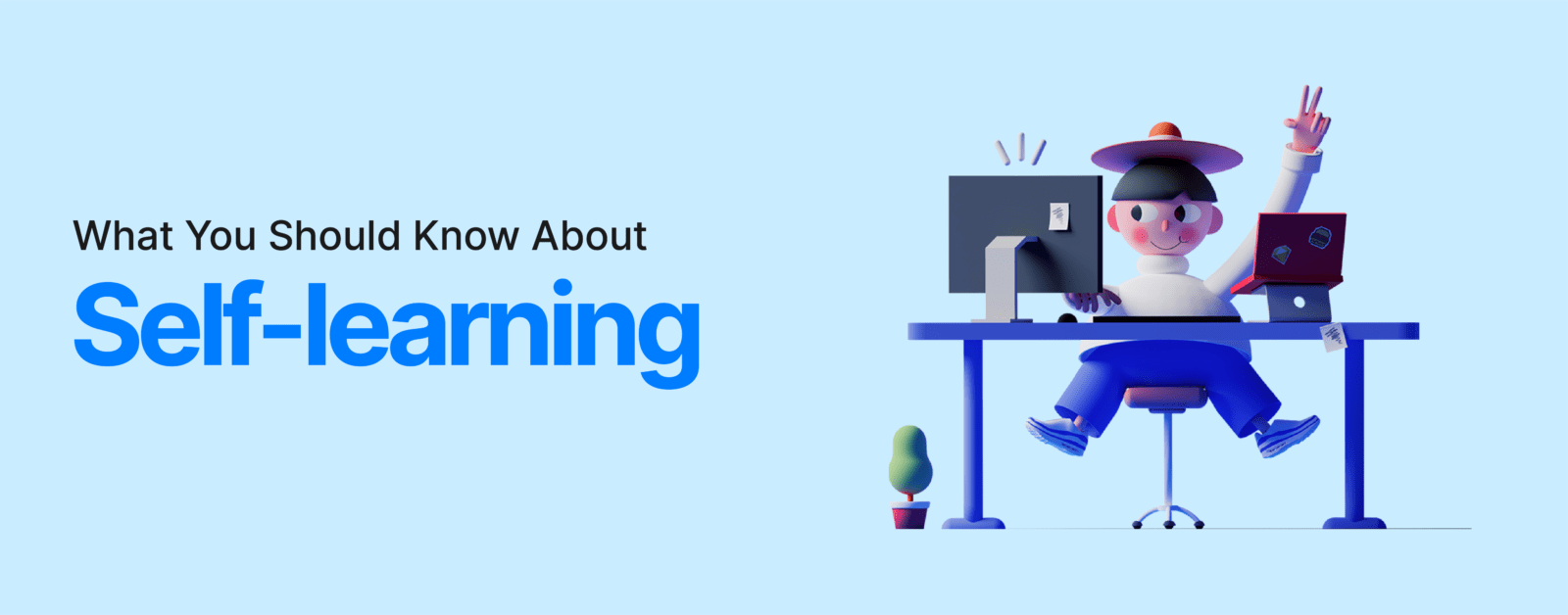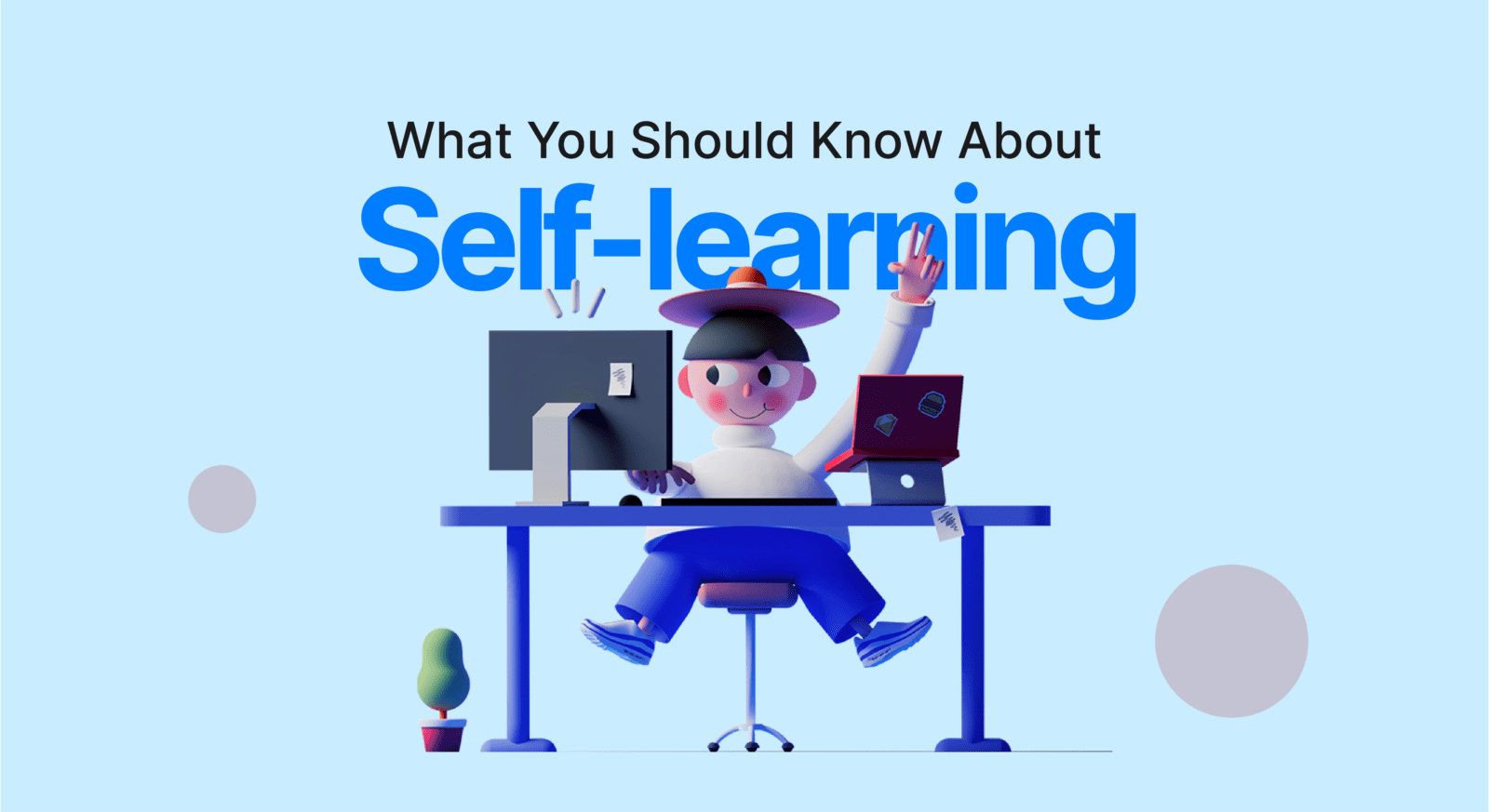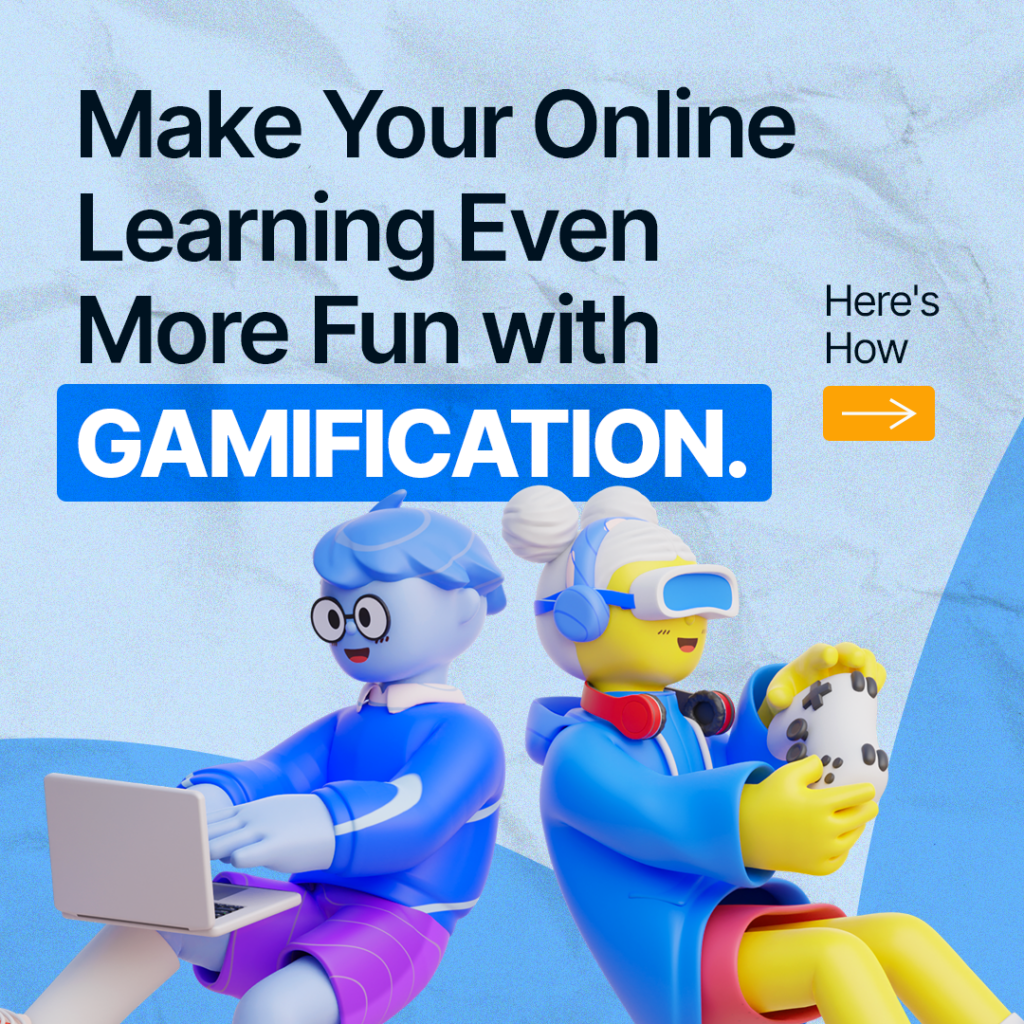According to Malcolm Knowles, “self-learning is a process by which individuals take the initiative, with or without the assistance of others, in diagnosing their learning needs, formulating learning goals, identifying human and material resources for learning, and evaluating outcomes.’’
Self-learning, also called ‘Autodidacticism’, has become less complex and more attainable all thanks to the innovation of technology and the internet. It’s now possible for one to research any topic or subject of interest with a few clicks.
You can now learn anything through a simple search question on google, online courses, or learn through YouTube video tutorials and other educational apps- all the while developing problem–solving skills and the learning ability of individuals.
Why is self-learning beneficial?
Self-learning is becoming increasingly popular among 21st–century youths (and older ones) for so many reasons and these are just a few of them:
✓Learn at your own pace
With self-learning, enthusiastic individuals can create a learning schedule that’s convenient for them. This ensures that the hours spent are useful in acquiring the relevant information needed as you’ll most likely choose a time when you’re comfortable.
Individuals learn at their own pace, do not rush things over and take enough time to grasp concepts and integrate information. The process makes it possible for individuals to study more about areas they are interested in, especially where traditional lectures are limited.
✓ Acquire important skills
People who are invested in learning by themselves are more likely to develop valuable life, societal and professional skills like time management consciousness, problem–solving skills, and so on.
They can set out goals or tasks, and make efforts to accomplish them through commitment and dedication without direct supervision. This way, they develop a great attitude to learning and are enthusiastic about life-long learning.
✓ The learning method depends on you
In self-learning you aren’t compelled to commit yourself to one system of learning. You can easily explore diverse methods, and determine which is best for you.
You have the luxury to experiment with different study methods until you find the perfect fit. YouTube tutorial videos, audiobooks, educational apps- you name it. Find an acceptable means through which you can learn and acquire knowledge.
✓ Fewer restrictions
Self-learning gives you the right to learn anywhere without conforming to a specific location unlike with conventional classroom studying. You can study wherever and whenever you feel comfortable.
Self-learning enhances the self-confidence of an individual when he/she realizes that they have gained an understanding of a concept or topic without the help of a tutor.
While self-learning has gained popularity in recent years, it has several insufficiencies that continue to undermine its effectiveness. Self learning, like any other method, still needs the active participation of the individual:
✓ Requires lots of self-discipline
If you need to be supervised or held accountable, then self-learning might not be the best option for you (except you put in place necessary measures) because it actually requires a great deal of discipline to study all by yourself.
Some people might not be able to fight off distractions, for example. You can find yourself watching movies, TV shows, or mindlessly scrolling on social media instead of actually studying. This could make your self-learning journey unproductive and ineffective.
✓ Absence of facilities
Reading the theoretical aspect of certain subjects might not be enough to gain a full understanding. Even if you get help from YouTube video tutorials, you might still not have sufficient tools and resources to carry out research and conduct experiments depending on the topic or area you’re studying.
If you’re studying a topic on biochemistry, for instance, you may have to perform experiments in the laboratory at some point. Sometimes you just need hands–on learning sessions but with self-learning, that option is usually not available.
✓ Lack of good communication
With one-sided self-learning platforms, you’ll totally miss the opportunity of making contributions or discussing in a physical, social gathering where ideas can be expressed to an audience in a classroom or small groups.
Active feedback and good communication is an important factor for most learners. With newer technology, you can discuss your ideas and views on a certain subject with fellow brilliant minds and learn from them as well in real–time.
Discovering the current insufficiencies with this learning process will help us navigate solutions we can offer to the modern self-learner. The goal is to take advantage of the benefits self-learning offers especially if you’re not a classroom person- and harness the possibilities of efficient learning.
VarsityScape is providing the solution to this- live cohort-based learning with on-demand content that also allows interaction between learners and instructors and records a higher course completion rate.
The truth is everyone has to learn a thing or two by themselves along the way and technology has made that easy for us. Explore the most exciting- and effective- learning experiences with VarsityScape and sign up for a course today.
Happy learning!









